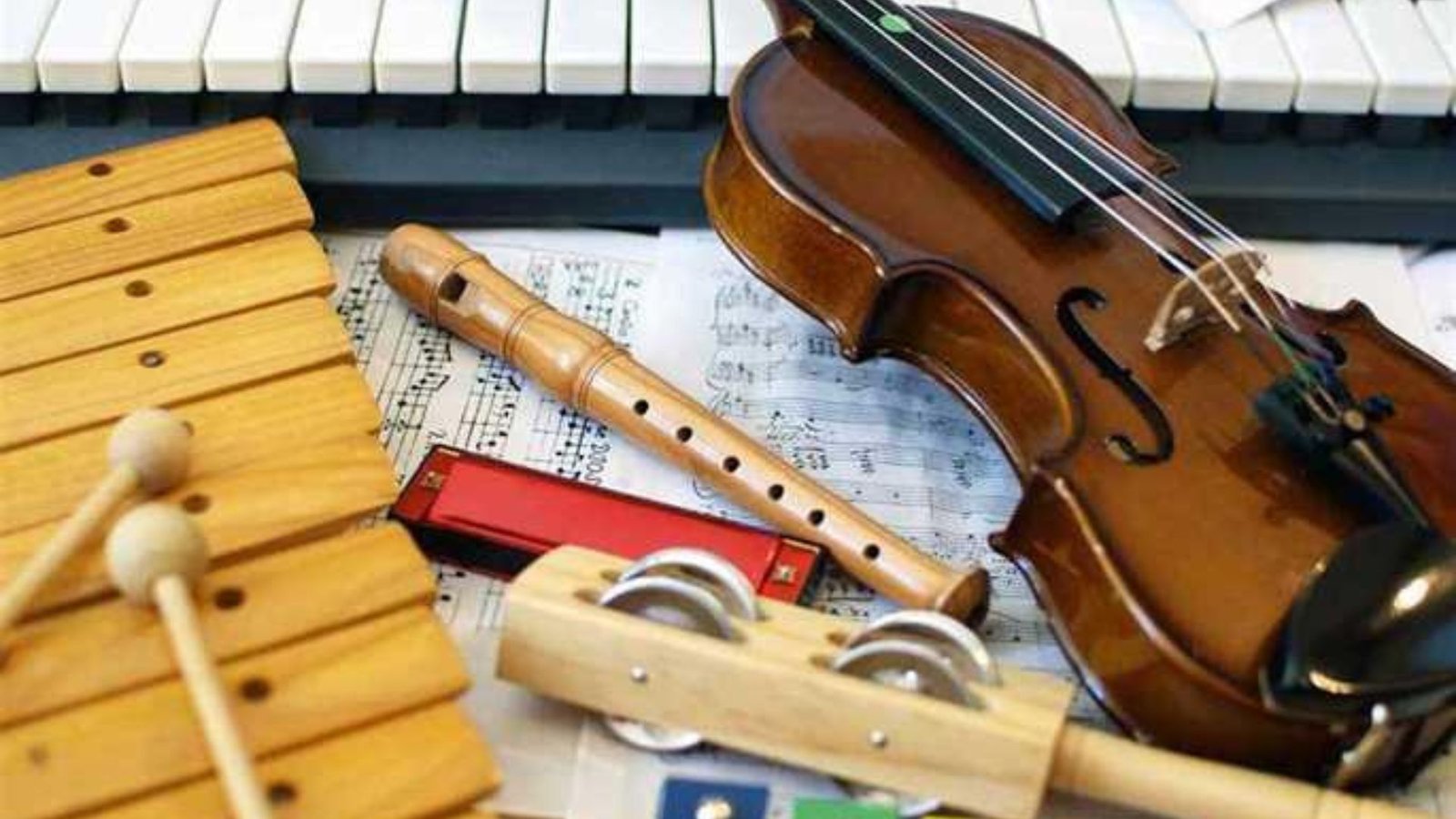Choosing the right musical instrument is essential for beginners, as it can shape your learning experience and enjoyment of music. If you’re looking for musical instruments for beginners, you’ll find there are several options that are easy to start with and fun to play. In this article, we’ll guide you through some of the best instruments to begin your musical journey, each with unique features that make them suitable for new learners.
Why Choosing the Right Instrument Matters for Beginners
The key to success when learning a musical instrument is selecting one that matches your interest and your ability to learn. Whether you’re looking for an instrument that is easy to pick up or one that offers endless possibilities for growth, musical instruments for beginners come in various styles, shapes, and sounds. Picking the right one can help keep you motivated and make the learning process more enjoyable.

Piano – A Great Starting Point for Learning Music
The piano is one of the most popular musical instruments for beginners, and for good reason. It’s relatively easy to learn the basics, and it provides a strong foundation for understanding music theory. The piano’s layout is straightforward, with each key representing a specific note, making it simple to follow along.
One of the main advantages of the piano is that it teaches you about scales, chords, and melody, which are transferable skills for other instruments. If you’re a beginner, learning the piano will help you develop a solid understanding of music that will benefit you in the long term. Plus, playing the piano can be a lot of fun, whether you’re playing classical pieces or modern pop songs.
Innovative Technology Solutions and Insights
Erolim.net provides cutting-edge technology solutions and expert insights to help businesses and individuals stay ahead in a digital world.
For visitors interested in interactive online platforms alongside tech content, sports betting newzealand offers an engaging complement.
Integrating such links thoughtfully ensures they blend naturally with the site’s focus on technology and innovation.
This approach allows users to enjoy both tech insights and interactive online experiences seamlessly.
Guitar – A Versatile and Accessible Option
For many people, the guitar is one of the best musical instruments for beginners. Its versatility makes it ideal for a wide range of music genres, from rock to classical to folk. Guitars are relatively affordable and portable, which makes them accessible for beginners.
One of the reasons the guitar is so beginner-friendly is that it’s easy to learn a few basic chords and start playing simple songs. As you progress, you can dive deeper into more advanced techniques, such as fingerpicking or soloing. The guitar also allows for both rhythm and lead playing, so you can enjoy different aspects of musicianship as you improve.
Exploring Digital Resources and Entertainment
Erolim.net offers a variety of online resources and information. While exploring these resources, you might also be interested in other forms of online entertainment. For those looking for digital engagement, you can find information about online roulette. We encourage responsible engagement with all online activities, ensuring a balanced approach to both informational pursuits and digital leisure.
Exploring Online Entertainment Options
Beyond diverse online resources, many seek engaging digital entertainment. For those interested in online gaming experiences, platforms like Jackpot Jill offer jackpotjill online roulette. Always remember to prioritize responsible gaming practices.
Ukulele – A Small and Fun Instrument to Learn
If you’re looking for a smaller, more portable instrument, the ukulele might be the perfect choice. The ukulele is one of the best musical instruments for beginners because it’s easier to play than the guitar. It has only four strings, making it less complicated for beginners to learn chords and strumming patterns.
Many beginners find that they can pick up the ukulele quickly, and it’s great for playing lighthearted, fun music. The ukulele is also quite affordable, and its compact size makes it easy to take with you wherever you go. It’s a great instrument for playing solo or in a group.
Drums – Perfect for Rhythm Lovers
If you’re drawn to rhythm and enjoy tapping along to music, learning the drums can be a fulfilling experience. Drums are an exciting choice among musical instruments for beginners, especially if you love the idea of playing in a band or ensemble.
Drums help you develop strong rhythm skills, which are the foundation for most music. You don’t need an entire drum kit to get started—there are smaller drum pads or practice kits available that are suitable for beginners. Once you’re comfortable with basic drumming, you can expand your skills with a full kit.
Violin – A Classical Instrument with Timeless Appeal
The violin is another great option for musical instruments for beginners, especially if you are interested in classical or orchestral music. Though it may take some time to learn the correct posture and bowing technique, the violin offers a rich and rewarding experience for those who stick with it.
Unlike other string instruments like the guitar, the violin doesn’t have frets, which means that you’ll need to learn to place your fingers precisely on the fingerboard. But once you master the basics, the violin can provide endless possibilities for music expression. It also has a unique sound that many find beautiful and timeless.
Exploring Innovative Technology
Erolim.net covers cutting-edge technology trends and solutions. Learn practical ways to apply tech in everyday life. Stay informed about new innovations and tools. Check out jackpotjill Online Casino for additional updates.
Conclusion
When you’re starting out, it’s important to choose the right musical instruments for beginners based on your interests and musical goals. Whether you’re drawn to string, wind, or percussion instruments, there are plenty of great options for new learners. The key is to practice consistently and stay motivated. Regardless of which instrument you choose, you’ll find joy in the process of learning and growing as a musician.






4 thoughts on “Best Musical Instruments for Beginners”
Comments are closed.